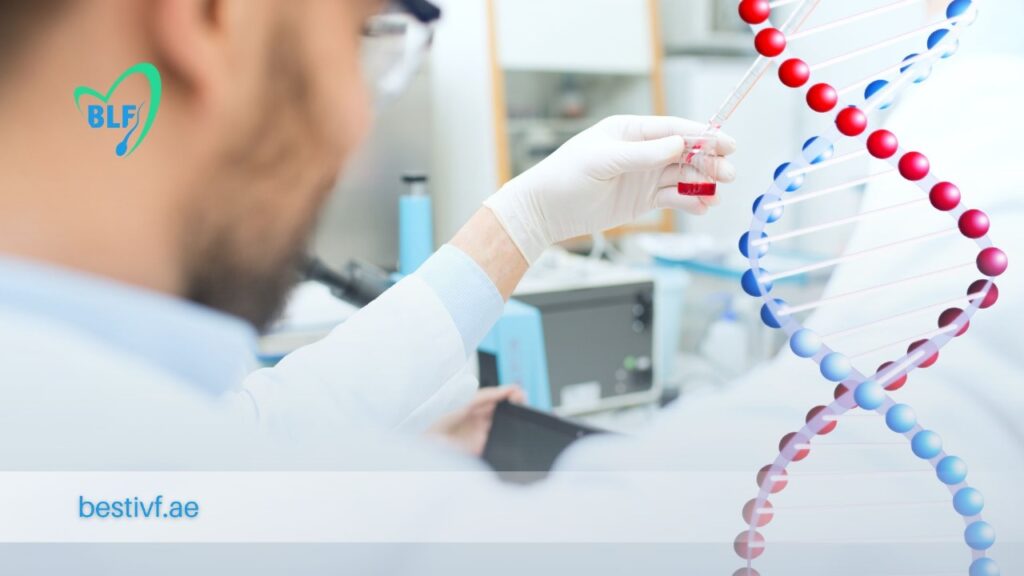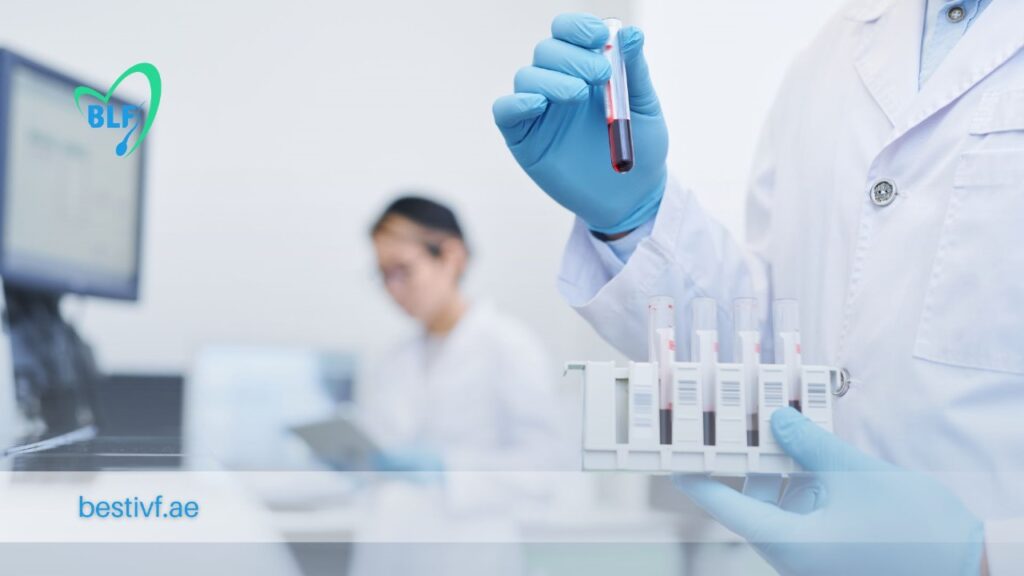Introduction:
Embarking on the journey of assisted reproductive technologies (ART) often involves navigating a landscape of advanced procedures and cutting-edge technologies. In some cases, Among these advanced technologies, Pre-Implantation Genetic Testing (PGT) stands out as a crucial step in ensuring the health and well-being of embryos conceived through assisted reproductive procedures. At Best Life Fertility center, our commitment to providing comprehensive care is underscored by our utilization of PGT and other innovative technologies. In this extensive exploration, we delve into the profound importance of genetic testing, the technological advancements at our center, and the specific types of PGT available to prospective parents.
The Role of Genetic Testing in Assisted Reproduction:

As couples embark on the journey of in vitro fertilization (IVF), the integration of genetic testing into the process becomes paramount in some cases. PGT allows for a meticulous examination of embryos before transferring the embryo/s to the mothers uterus, enabling the identification of any potential genetic abnormalities. This proactive approach significantly diminishes the risk of birth defects or hereditary disorders, providing couples with a unique opportunity to ensure the health and well-being of their future children.
The significance of genetic testing becomes particularly evident in cases involving couples who are carriers of genetic disorders or those facing challenges such as advanced maternal age, recurrent implantation failure, recurrent miscarriages, or severe male factors. Through the synergy of genetic testing and IVF, alongside the experts consultation, couples gain the ability to make informed decisions about the implanted embryos , thus minimizing the likelihood of passing on genetic conditions.
Best Life Fertility Center’s Technological Advancements:
In our pursuit of excellence, Best Life Fertility center in Sharjah boasts a repertoire of the latest and most advanced IVF techniques and technologies. These include Laser Assisted Hatching (LAH), Key Performance Indicators (KPIs), Preimplantation Genetic Testing (PGT), and Embryo Freezing.

Laser Assisted Hatching (LAH):
Within our state-of-the-art laboratory, Laser Assisted Hatching (LAH) plays a crucial role in some cases. This innovative procedure employs a precision laser to delicately thin the outer shell of fertilized eggs to increase the chances of the embryo proper hatching. By enhancing the embryo’s ability to hatch successfully, LAH significantly increases the chances of successful implantation and, subsequently, a healthy pregnancy. This technique is particularly recommended under specific conditions, showcasing higher success rates and improved outcomes in associated IVF procedures.
Key Performance Indicators (KPIs):
Evaluation of an ART laboratory’s performance is indispensable, and KPIs offer a valuable strategy in this regard. By predicting clinical pregnancy and evaluating the clinical-laboratorial interface, KPIs provide insights that contribute to achieving the best ongoing pregnancy results. At Best Life Fertility center, a meticulous focus on KPIs underscores our commitment to continuous improvement and optimal patient outcomes.
Preimplantation Genetic Testing (PGT):
At the core of our commitment to advanced reproductive care lies the incorporation of three distinct types of PGT: PGT A, PGT M, and PGT SR.
Preimplantation Genetic Testing (PGT):
Preimplantation Genetic Testing (PGT) is a very important sin our commitment to providing advanced reproductive care at Best Life Fertility center. This sophisticated technique allows us to offer a nuanced and personalized approach to genetic screening, ensuring that prospective parents have the necessary information to make informed decisions about their reproductive journey. Let’s delve into the specifics of each type of PGT to provide a comprehensive understanding of their significance:
1. PGT A (Aneuploidy Screening):
PGT A is a meticulous screening process that involves the detection of numerical chromosomal abnormalities within embryos. Numerical chromosomal abnormalities, (aneuploidy embryos), can significantly impact the embryo’s viability and lead to developmental issues, or may result in a baby being born with a genetic condition such as Down’s syndrome (extra full or partial copy of chromosome 21).
By scrutinizing these aspects, PGT A offers a comprehensive assessment of the chromosomal integrity of embryos, ensuring that only those with the highest likelihood of a successful pregnancy are selected for implantation.
2. PGT M (Monogenic Disorder Screening):

Designed to address the specific concerns of couples with known genetic conditions they may have or carry, PGT M is a targeted screening process that identifies monogenic disorders. Monogenic disorders result from mutations in a single gene and can have a profound impact on the health of the future child. PGT M enables us to identify embryos carrying specific genetic conditions, such as: neurofibromatosis, cystic fibrosis or sickle cell anemia, providing couples with valuable information to make the best decisions with the help and consultation of a professional doctor aligned with their family-building goals. This personalized approach to genetic screening empowers couples to navigate the complexities of genetic disorders with confidence.
3. PGT SR (Structural Rearrangement Screening):
PGT SR plays a crucial role for couples with a history of structural rearrangements within their chromosomes. Structural rearrangements, such as translocations or inversions, can lead to chromosomal imbalances in the embryo, impacting its development. By employing PGT SR, we can identify and selectively choose embryos with normal chromosomal structures, thereby increasing the chances of a successful pregnancy. This targeted screening approach is pivotal for couples navigating the challenges associated with structural chromosomal variations.
In elucidating the differences between PGT A, PGT M, and PGT SR, our goal is to empower couples with knowledge that goes beyond the complexities of genetic screening. By providing a thorough understanding of each type of PGT, we enable prospective parents to make informed decisions tailored to their unique circumstances. This personalized and informative approach is integral to our commitment to not only achieving successful pregnancies but also ensuring the health and well-being of future generations. At Best Life Fertility center, we believe that knowledge is a powerful tool in the hands of those embarking on the transformative journey of assisted reproduction.
How is Pre-Implantation Genetic Testing (PGT) performed ?
The PGT (Pre-Implantation Genetic Testing) is conducted in the modern laboratory setting after the process of in vitro fertilization and before the embryo transfer to the mother’s uterus for implantation.
The procedure involves extracting a small number of embryonic cells, through a biopsy, for genetic analysis. This examination allows doctors to determine whether the embryo carries any genetic alterations that may impact its future health.

What sets this examination apart is its provision of an opportunity for reassurance and informed decision-making before pregnancy. The physicians at Best Life Fertility Center assist in simplifying the process for couples, enhancing their understanding of the examination’s nature and how it can positively influence their future choices and the potential health of their children, and making the best decision regarding their medical condition to insure the best pregnancy success rates.
Conclusion:
In the ever-evolving landscape of assisted reproductive technologies, the integration of Pre-Implantation Genetic Testing emerges as a beacon of hope and assurance for prospective parents. At Best Life Fertility center, our dedication to offering the latest in reproductive care is manifested through the utilization of advanced techniques such as PGT, LAH, KPIs, and embryo freezing. These technologies collectively contribute to higher success rates, improved outcomes, and a holistic approach to fertility treatment.
As we navigate the intricacies of assisted reproduction, the synergy of cutting-edge technologies and personalized care defines our commitment to guiding couples on a path towards fulfilling their dreams of parenthood. In choosing Best Life Fertility center, couples not only embark on a journey of hope but also partner with a center that prioritizes excellence, innovation, and the holistic well-being of each prospective family.


